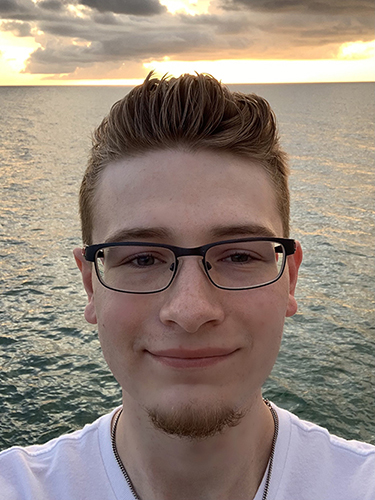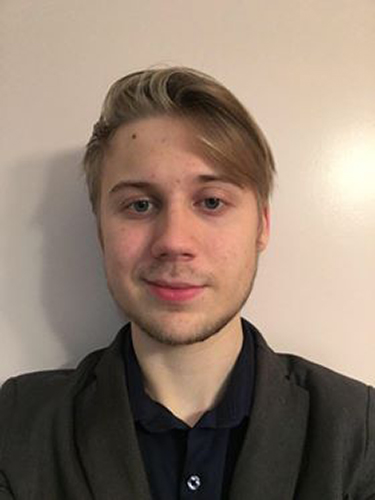Marine and Environment
Cognitive Wireless Radios for Maritime Robotics
REU Mentor: George Sklivanitis, Ph.D.
REU Scholar: Ryan Balloun
REU Scholar Home Institution: University of Rochester
Project: Design and Implementation of M-FSK for a Software-Defined Underwater Acoustic Modem
REU Mentor: George Sklivanitis, Ph.D.
REU Scholar: Parker Wilmoth
REU Scholar Home Institution: University of Texas at Tyler
Project: Acoustic Energy Harvesting for Battery-less Underwater IoT
PROJECT
This project focuses on the design, development, and evaluation of cognitive wireless radios capable of software-defined radio technology and artificial intelligence to enable intelligent adaptation, from the physical layer through the networking layer. The objective is to create small form-factor cognitive radios capable of multi-hop mesh networking to support maritime robotic swarms that travel underwater, on the sea surface, and in the sky. The intellectual merit of the proposed REU project stems from (1) significantly advancing the state of the art in AI-assisted, underwater, acoustic communication; and (2) resolving interoperability issues in heterogeneous, multi-medium networks that involve real-time interaction among undersea, aerial, and water-surface vehicles. The broader impacts of the project derive from the anticipated advancements in open source, software-defined hardware architectures for vehicle-to-vehicle communication. The effort has the potential to significantly benefit data collection activities for ocean engineers and marine scientists, supporting applications in marine biology, seabed mapping, and chemical oceanography. Potential benefits for search-and-rescue operations and maritime security are also evident. The project will involve two REU participants each summer, with a primary focus on developing and evaluating the supporting hardware and software. The participants will work together as a team to design electronic subsystems and supporting software blocks for software-defined radio platforms. This will require an iterative design process under the supervision of Dr. Sklivanitis. The intent is for one participant to focus on subsystem circuit design, and the other to focus on supporting software, with both students participating in evaluation. In practice, the students are likely to collaborate across both areas. The participants will gain experience and skills in a variety of areas, including signal processing, embedded systems, underwater communications, mesh networking, and machine learning.

